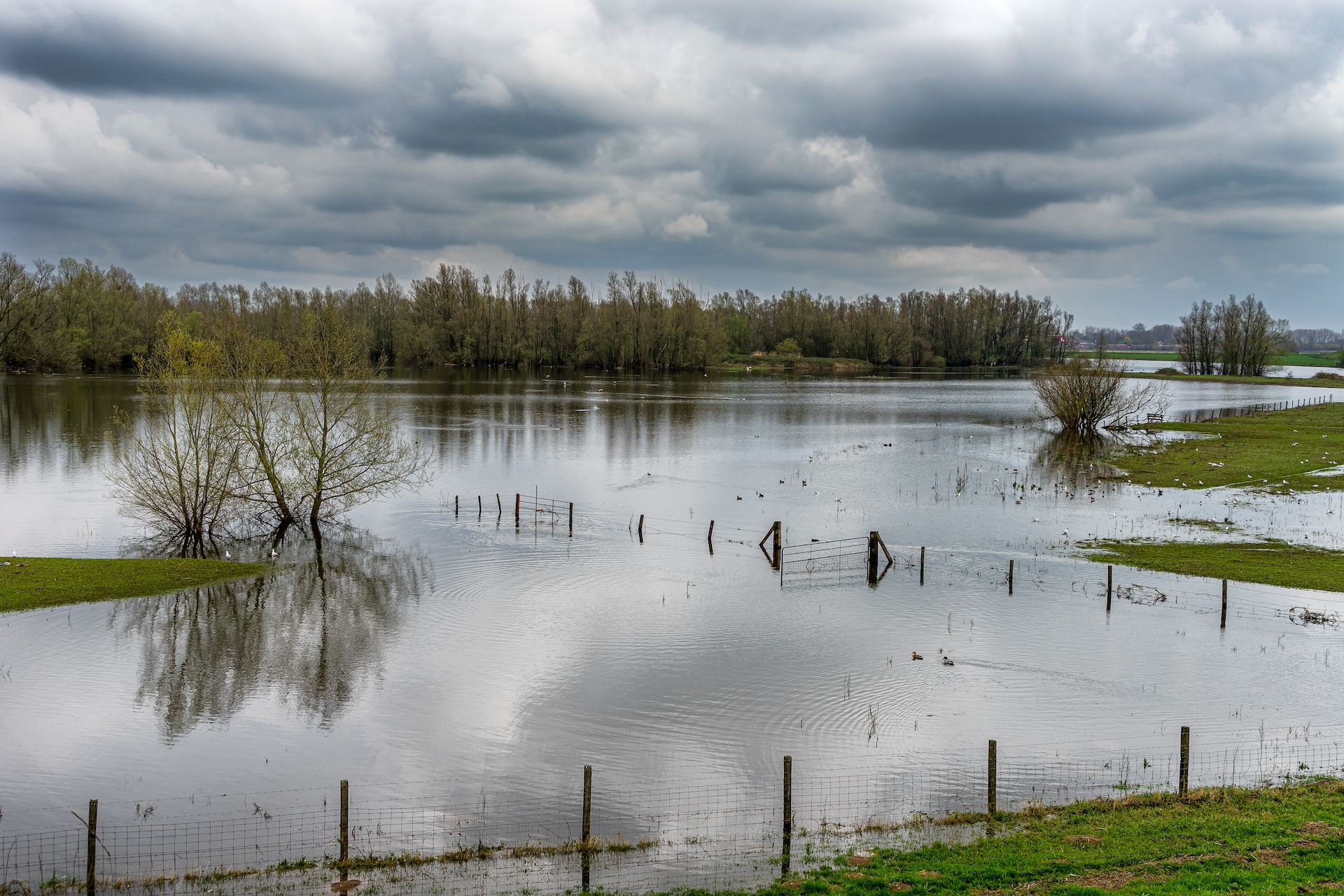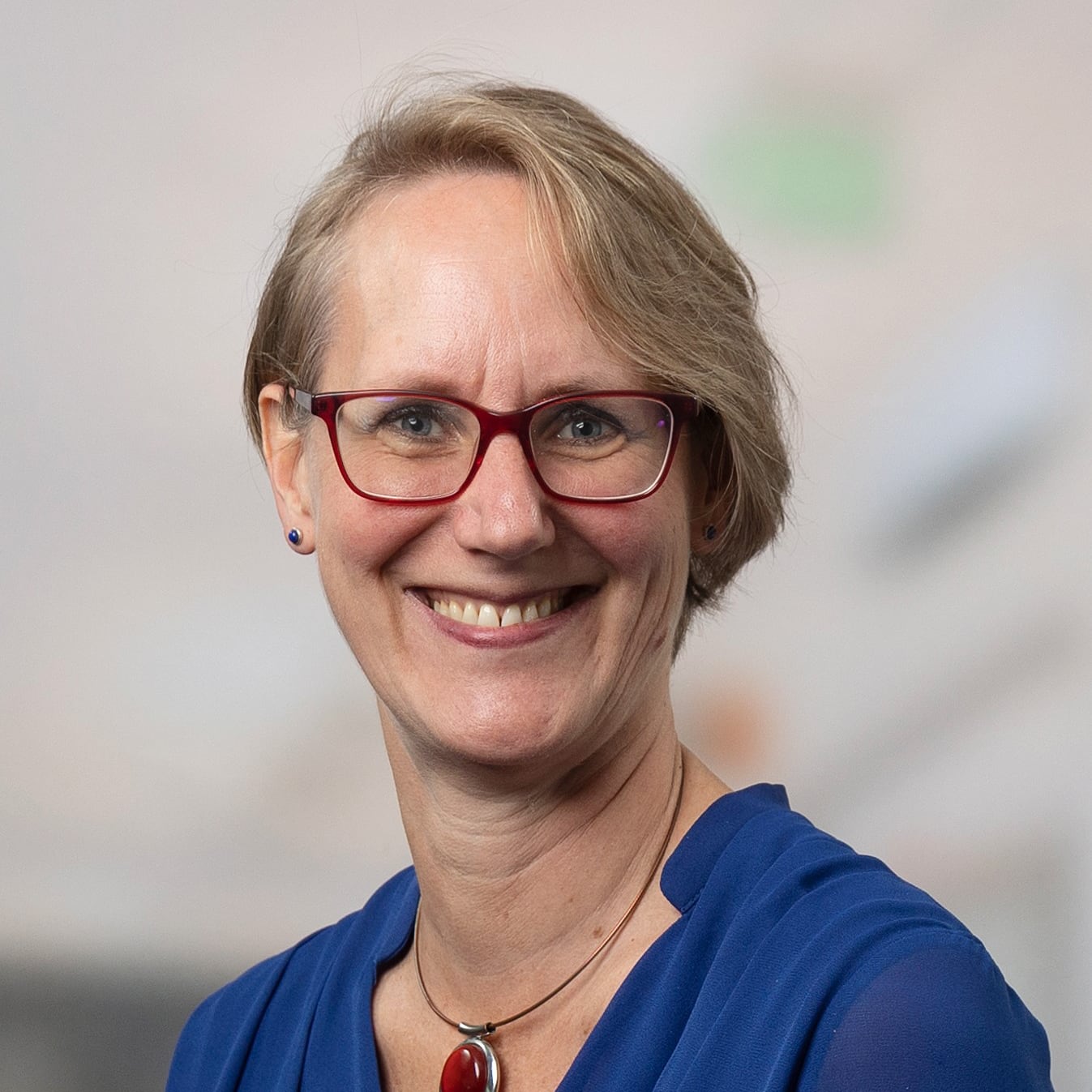 (ENGLISH BELOW) Op 2 juli organiseerde DigiShape een werksessie binnen de werkgroep Water en Klimaat van de Nederlandse AI Coalitie. Het doel: verkennen hoe AI kan bijdragen aan klimaatuitdagingen. Eén van de besproken concepten was ‘AI for flood disaster management’, een spontaan idee van Christine Bel dat nog verdere uitwerking vraagt. We spraken haar hierover.
(ENGLISH BELOW) Op 2 juli organiseerde DigiShape een werksessie binnen de werkgroep Water en Klimaat van de Nederlandse AI Coalitie. Het doel: verkennen hoe AI kan bijdragen aan klimaatuitdagingen. Eén van de besproken concepten was ‘AI for flood disaster management’, een spontaan idee van Christine Bel dat nog verdere uitwerking vraagt. We spraken haar hierover.
Afbeelding van Freepik: De Waalbodem in de winter op een bewolkte dag
Christine, wat is jouw functie?
“Als Innovation Manager AI aan de TU Delft verbind ik wetenschap met de praktijk, zodat ons onderzoek concreet bijdraagt aan het helpen oplossen van maatschappelijke problemen. De sessie AI voor Water en Klimaat was een kans om te verkennen hoe AI oplossingen kan bieden voor uitdagingen rondom water en klimaat.”
Kun je meer vertellen over je idee om AI in te zetten bij overstromingen?
“Er wordt volop onderzoek gedaan naar het met AI voorspellen van overstromingen, ook door TU Delft. Maar wat doe je met die informatie? Welke maatregelen neem je bij een voorspelde of lopende overstroming? Naast technische oplossingen, zoals dijken of zandzakken, spelen bestuurlijke aspecten een rol. Wat doe je bijvoorbeeld als iedereen probeert met de auto een stad uit te komen? Werken dan je evaluatieprotocollen nog wel? Er spelen allerlei procedures, communicatie, politiek en onvoorspelbaar menselijk gedrag mee en AI kan wellicht helpen deze complexe factoren te integreren in de besluitvorming.”
Heb je een voorbeeld van hoe AI kan helpen in crisissituaties?
Lachend: “Eerlijk gezegd baseer ik me vooral op wat ik tijdens de bijeenkomst hoorde en op Netflix, want ik ben geen waterexpert. In de serie ‘Wielka Woda’, gebaseerd op een waargebeurd verhaal, moeten betrokkenen beslissen of ze een dijk gaan doorbreken om een stad te redden, ten koste van een dorp. Niemand durfde die verantwoordelijkheid te nemen. Wat er uiteindelijk gebeurde, verklap ik niet, maar ik denk dat AI in crisissituaties snel scenario’s kan doorrekenen en opties kan bieden, zodat je niet in eindeloze politieke discussies belandt.”
Wat zijn volgens jou uitdagingen bij het toepassen van AI in deze context?
“De eerste uitdaging is de beschikbaarheid van data. We hebben betrouwbare gegevens nodig over overstromingen, infrastructuur en menselijke reacties. Daarnaast is ethiek belangrijk. AI kan scenario’s doorrekenen, maar dat betekent niet dat die scenario’s ook bestuurlijk haalbaar of wenselijk zijn. Denk aan de toeslagenaffaire: daar is onvoldoende nagedacht over de onwenselijke gevolgen van de inzet van algoritmen. Bij overstromingen moet je bijvoorbeeld afwegen: nu actief ingrijpen met bepaalde consequenties of ergere gevolgen riskeren? Dit moet ingebed zijn in een systeem dat ook dit soort ethische en bestuurlijke afwegingen meeneemt. En de uiteindelijke beslissing ligt altijd bij de mens."
Wat zou een volgende stap kunnen zijn voor het verder ontwikkelen van dit idee?
“Wetenschappers en onderzoekers vinden die geïnteresseerd zijn in dit onderwerp en de mogelijkheden voor funding verkennen. Daarbij is het uiteraard van belang om samen te werken met partners zoals Rijkswaterstaat, waterschappen en gemeenten.”
 Hoe kijk je terug op je rol in de werksessie?
Hoe kijk je terug op je rol in de werksessie?
“Het was een waardevolle ervaring om met experts te praten en een spontaan idee te delen. Mijn rol is vooral om verbindingen te leggen en te kijken hoe we verder kunnen met zulke ideeën. Als er wetenschappers zijn die geïnteresseerd zijn, kan ik hen in contact brengen met mogelijk geïnteresseerde TU onderzoekers.
Heb je vragen of wil je met Christine van gedachten wisselen? Je kunt contact met Christine opnemen via Dit e-mailadres wordt beveiligd tegen spambots. JavaScript dient ingeschakeld te zijn om het te bekijken..
--- ENGLISH VERSION (translation by DeepL) ---
AI for flood disaster management

On 2 July, DigiShape organised a working session within the Water and Climate working group of the Dutch AI Coalition. The aim: to explore how AI can contribute to climate challenges. One of the concepts discussed was ‘AI for flood disaster management’, a spontaneous idea by Christine Bel that needs further elaboration. We spoke to her about it.
Image from Freepik: The Waal bottom in winter on a cloudy day
Christine, what is your position?
‘As Innovation Manager AI at TU Delft, I connect science with practice so that our research contributes concretely to helping solve societal problems. The AI for Water and Climate session was an opportunity to explore how AI can provide solutions to challenges around water and climate.’
Can you talk more about your idea of using AI for flooding?
‘There is plenty of research on using AI to predict floods, including by TU Delft. But what do you do with that information? What measures do you take when flooding is predicted or ongoing? Besides technical solutions, such as dykes or sandbags, administrative aspects play a role. For instance, what do you do if everyone tries to get out of a city by car? Will your assessment protocols still work then? All sorts of procedures, communication, politics and unpredictable human behaviour come into play, and AI may be able to help integrate these complex factors into decision-making.’
Do you have an example of how AI can help in crisis situations?
Laughs: ‘To be honest, I'm mainly basing it on what I heard at the meeting and on Netflix, because I'm not a water expert. In the series ‘Wielka Woda’, based on a true story, those involved have to decide whether to breach a dyke to save a town, at the expense of a village. No one dared to take that responsibility. I won't reveal what happened in the end, but I think AI can quickly calculate scenarios in crisis situations and provide options, so you don't end up in endless political discussions.’
What do you think are challenges in applying AI in this context?
‘The first challenge is the availability of data. We need reliable data on floods, infrastructure and human responses. In addition, ethics are important. AI can calculate scenarios, but that does not mean those scenarios are also administratively feasible or desirable. Think of the surcharge affair: there, insufficient thought was given to the undesirable consequences of deploying algorithms. With floods, for instance, you have to weigh up: intervene actively now with certain consequences or risk worse consequences? This has to be embedded in a system that also includes these kinds of ethical and managerial considerations. And the final decision always lies with humans.’
What could be a next step for developing this idea further?
‘Finding scientists and researchers interested in this topic and exploring the possibilities for funding. In doing so, it is obviously important to work with partners such as the Directorate-General for Public Works and Water Management, water boards and municipalities.’
 How do you look back on your role in the working session?
How do you look back on your role in the working session?
‘It was a valuable experience to talk to experts and share a spontaneous idea. My role is mainly to make connections and see how we can move forward with such ideas. If any scientists are interested, I can put them in touch with potentially interested TU researchers.
Do you have any questions or want to exchange views with Christine? You can contact Christine at Dit e-mailadres wordt beveiligd tegen spambots. JavaScript dient ingeschakeld te zijn om het te bekijken..

